 Is PAW Patrol just authoritarian capitalist propaganda? Such accusations may tell us more about adult critics than they do about children…
Is PAW Patrol just authoritarian capitalist propaganda? Such accusations may tell us more about adult critics than they do about children…
One of the amusing aspects of becoming a grandparent is observing at first hand how fashions in childrearing have changed – and yet, in many instances, how the basic dilemmas have remained the same. The job of today’s parents is probably not made easier by the plethora of self-appointed experts and influencers they encounter online. And yet, as ever, one of the most significant vectors of concern here is to do with children’s screen entertainment and the apparently harmful messages it purveys.
 My three-and-a-half-year-old grandson is currently obsessed with the Canadian animated series PAW Patrol, which has recently replaced the updated Thomas and Friends in his affections. (I would like to be able to report that he is an enthusiast for Czechoslovakian animation and Senegalese art movies, but it seems that my cultural capital doesn’t stretch that far.) He has watched the first PAW Patrol movie more than a dozen times, and we await with trepidation the release of its sequel (The Mighty Movie) later this year. Along with the nine animated series available on various streaming services, and the copious range of merchandise, the computer-animated puppies have become inescapable. My grandson wears his Paw Patrol socks with pride.
My three-and-a-half-year-old grandson is currently obsessed with the Canadian animated series PAW Patrol, which has recently replaced the updated Thomas and Friends in his affections. (I would like to be able to report that he is an enthusiast for Czechoslovakian animation and Senegalese art movies, but it seems that my cultural capital doesn’t stretch that far.) He has watched the first PAW Patrol movie more than a dozen times, and we await with trepidation the release of its sequel (The Mighty Movie) later this year. Along with the nine animated series available on various streaming services, and the copious range of merchandise, the computer-animated puppies have become inescapable. My grandson wears his Paw Patrol socks with pride.
As ever, liberal commentators worry endlessly about what this kind of thing is teaching our children. This is by no means a new concern. For decades, Disney has been the favoured ‘bad object’ of children’s media, as legions of concerned parents and commentators (and academics) have bemoaned what they see as its sexism and racism, and its unthinking support of consumer capitalism. As I’ve documented elsewhere on this blog, Disney itself has now taken to putting ideological health warnings on some of its earlier output.
The wave of toy-based animation that began in the 1970s and 1980s provided such critics with a plethora of easy targets, from He-Man and the Masters of the Universe to My Little Pony and beyond. And as marketers have increasingly courted the pre-school audience, even seemingly innocuous shows like Teletubbies, Thomas the Tank Engine and Peppa Pig have generated floods of condemnation.
 Of course, this isn’t only a preoccupation of liberals and progressives. Just as the left gets exercised about ideology, the right fulminates about poor moral lessons and the promotion of various forms of bad behaviour (most obviously ‘violence’). I’m reminded here of the American preacher Jerry Falwell’s argument that the Teletubbies character Tinky Winky was a coded form of gay propaganda, on the grounds of its handbag and mauve colouration. On both sides, adult critics seem to assume that the ‘messages’ they detect will be the same as those perceived by children; and that children are particularly vulnerable to such dangerous indoctrination.
Of course, this isn’t only a preoccupation of liberals and progressives. Just as the left gets exercised about ideology, the right fulminates about poor moral lessons and the promotion of various forms of bad behaviour (most obviously ‘violence’). I’m reminded here of the American preacher Jerry Falwell’s argument that the Teletubbies character Tinky Winky was a coded form of gay propaganda, on the grounds of its handbag and mauve colouration. On both sides, adult critics seem to assume that the ‘messages’ they detect will be the same as those perceived by children; and that children are particularly vulnerable to such dangerous indoctrination.
The title of this post is intended to be ironical, but it reflects much of the tone of adult criticism of PAW Patrol. For those who have never encountered it, the series is about a team of rescue puppies led by a ten-year-old boy named Ryder. The puppies have different skills and specialisms, and each of them drives a different high-tech transforming vehicle equipped with a range of robotic rescue devices. In each episode, Ryder summons his team to respond to impending disasters of various kinds, and of course they invariably save the day. It’s not an unfamiliar formula, and the potential for showcasing an ever-changing panoply of merchandise is equally obvious.
The series was created by the British writer Keith Chapman (also responsible for Bob the Builder), and is produced in Canada by Spin Master Entertainment – although it is marketed internationally (in as many as 160 countries) by the US-based giant Nickelodeon, now owned by Paramount. In the ten years since it launched, 234 episodes have been produced, and the show has recently been renewed for its eleventh season.
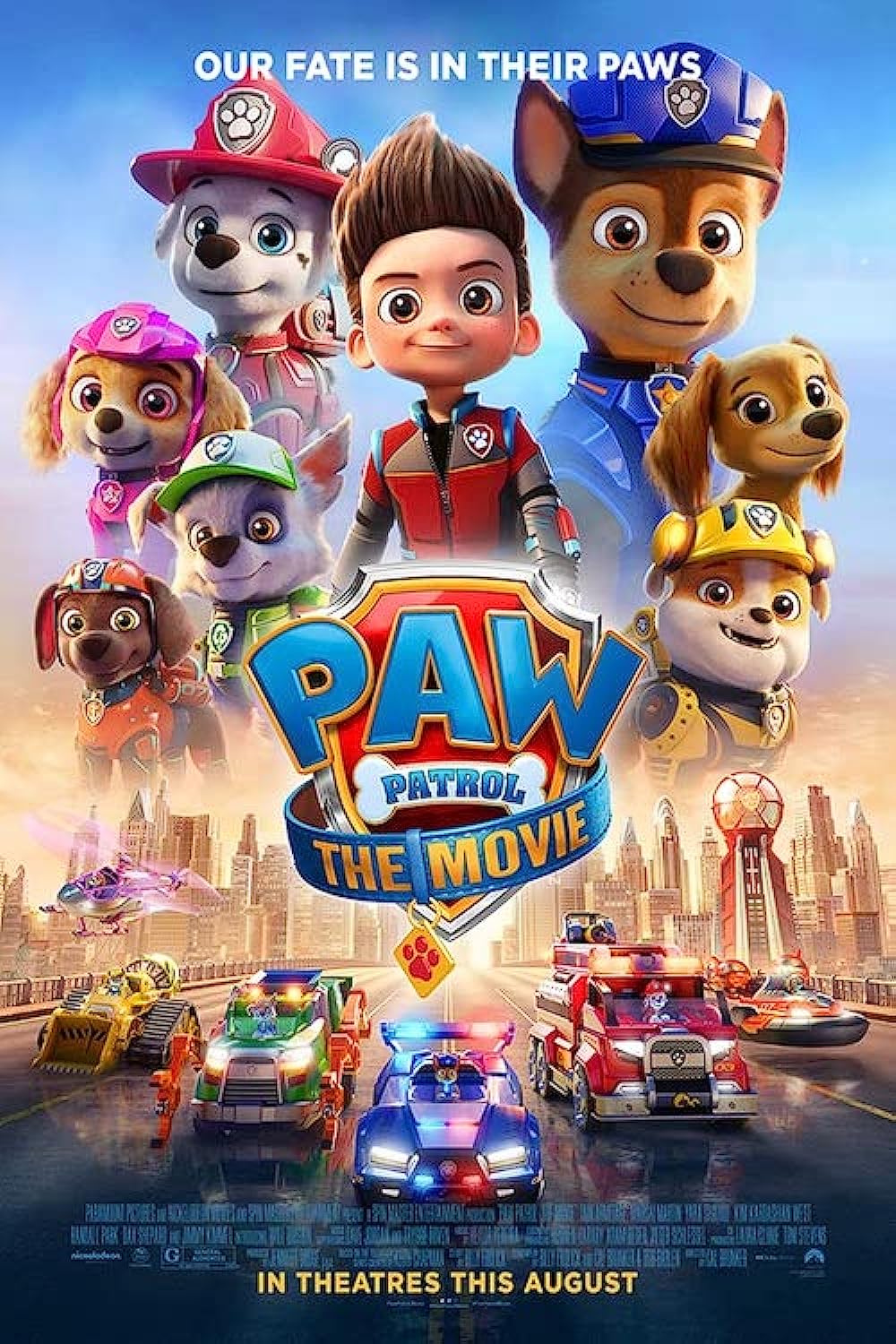 Much of the criticism that has been directed at PAW Patrol relates to its phenomenally successful first feature film, which was released in 2021. Directed by Cal Brunker, the film is essentially an extended multi-episode version of the TV show. The PAW Patrol relocate from their familiar small-town setting of Adventure Bay to the metropolis, Adventure City. Here, they are required to respond to a series of disaster-movie scenarios generated by the newly elected Mayor Humdinger: a fireworks display goes dangerously out of control; a roller-coaster loop on the subway gets jammed, leaving passengers stranded in mid-air; and a weather-control satellite malfunctions, causing climate chaos. Ryder helps the leading puppy, Chase, address his fears of the city, which go back to his childhood; and a new female puppy, the street savvy Liberty, joins the team.
Much of the criticism that has been directed at PAW Patrol relates to its phenomenally successful first feature film, which was released in 2021. Directed by Cal Brunker, the film is essentially an extended multi-episode version of the TV show. The PAW Patrol relocate from their familiar small-town setting of Adventure Bay to the metropolis, Adventure City. Here, they are required to respond to a series of disaster-movie scenarios generated by the newly elected Mayor Humdinger: a fireworks display goes dangerously out of control; a roller-coaster loop on the subway gets jammed, leaving passengers stranded in mid-air; and a weather-control satellite malfunctions, causing climate chaos. Ryder helps the leading puppy, Chase, address his fears of the city, which go back to his childhood; and a new female puppy, the street savvy Liberty, joins the team.
The film and the animated series have generated an extraordinary degree of critical vitriol. One early voice was a Canadian criminology professor, Liam Kennedy, who describes the series as a kind of vindication of neoliberal capitalism. The PAW Patrol, he alleges, is a private corporation that has taken over public social services; and in this respect, the series ‘echoes core tenets of neoliberalism’, suggesting ‘that we can and should rely on corporations and technological advancements to combat crime and conserve, with responsibilized individuals assisting in this endeavor’.
Kennedy’s comments were widely reported, including in the New York Times – which also suggested there had been a ‘backlash’ from Black Lives Matter protesters about the show’s positive portrayal of the police (especially in the character of Chase, who weas a police-type uniform). In a similar vein, IndieWire asserts that the PAW Patrol ‘operates much like an over-funded police department in a technocratic state’, that the film is effectively ‘calling for a police state’. The Guardian newspaper likewise condemns the film as ‘authoritarian neoliberal propaganda’ and ‘gross right-wingery’; as vigilantes undoing the failings of the state, the puppies apparently embody ‘a form of Ayn Randian objectivism’, and the world of Adventure Bay is a ‘ceaselessly cheery neoliberal nightmare’.
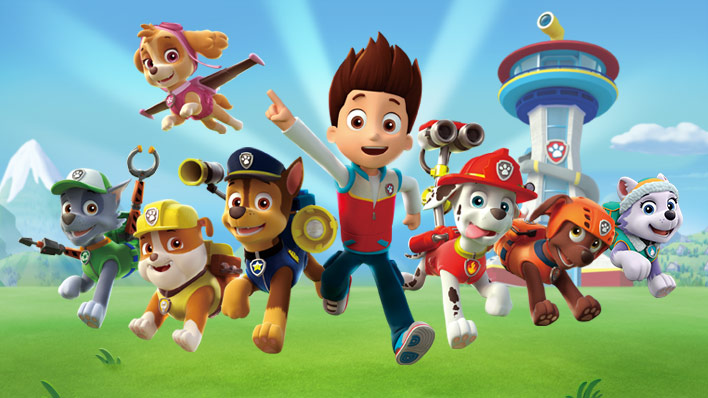 Misogyny is another major charge levelled against PAW Patrol. Counting heads, the critics complain that (at least until the film) the PAW Patrol only includes one token female character, who is (they allege) merely ‘fluffy’ and ‘self-deprecating’. The Guardian critic is not alone in condemning the ‘patriarchal gender performance’ that follows from this, or in complaining about the thin, stereotypical characterisation.
Misogyny is another major charge levelled against PAW Patrol. Counting heads, the critics complain that (at least until the film) the PAW Patrol only includes one token female character, who is (they allege) merely ‘fluffy’ and ‘self-deprecating’. The Guardian critic is not alone in condemning the ‘patriarchal gender performance’ that follows from this, or in complaining about the thin, stereotypical characterisation.
These criticisms are implicitly reinforced by dismissive comments about quality. The Forbes critic, for example, finds the series ‘incredibly annoying’ and ‘repetitive’, and complains about its ‘cheap-looking animation’, while also arguing that it offers a ‘distorted view of the world’ in which teams of people work together and never disagree. Meanwhile, Vulture dismisses it as ‘contemptible trash’ and ‘utter filth’, suggesting that it is ‘callously amoral’ and displays ‘disdain for anything remotely edifying’. Its rescue stories even fail to teach appropriate health and safety skills!
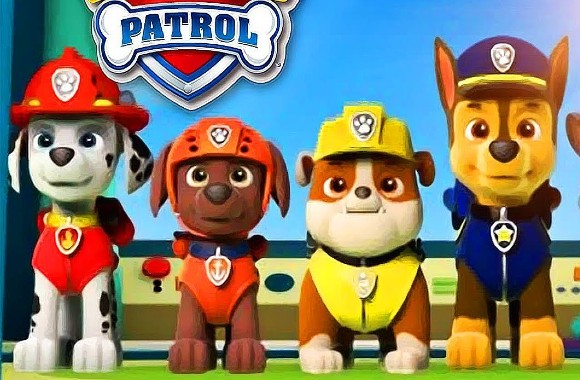 And, inevitably, all these shortcomings are seen to carry particular weight since they apply to children. The Guardian says the series reflects ‘a modern culture in which children are evidently overly stimulated’; while the critic ‘Walt D’ on Medium finds the series especially ‘sinister’ in its effects on such an ‘impressionable audience’. According to the criminology professor Liam Kennedy, children who watch PAW Patrol ‘might be less likely to critique the capitalist system that causes environmental harm in the first place and reproduces inequality’.
And, inevitably, all these shortcomings are seen to carry particular weight since they apply to children. The Guardian says the series reflects ‘a modern culture in which children are evidently overly stimulated’; while the critic ‘Walt D’ on Medium finds the series especially ‘sinister’ in its effects on such an ‘impressionable audience’. According to the criminology professor Liam Kennedy, children who watch PAW Patrol ‘might be less likely to critique the capitalist system that causes environmental harm in the first place and reproduces inequality’.
These criticisms might be seen merely as revenge attacks on the part of bored or frustrated parents (although interestingly, almost all of them are written by men). Complaining that a children’s cartoon is repetitive or noisy or fast-paced, or that the characters are not as developed as they are in Jane Austen, is a bit like complaining that water is wet. The only dad who brings a scrap of irony to the debate is the Guardian’s Stuart Heritage, who concludes: ‘the moral of this story is: don’t have children’.
Of course, this kind of thing easily fills column inches, and makes excellent clickbait – and in that respect, it is typical of the ‘op ed’ mentality of much contemporary journalism. It is very quickly disseminated on social media; and in line with the climate of our times, it also becomes fodder for the culture wars. Thus, the Mail Online seeks to defend PAW Patrol from the attacks of the ’woke brigade’ and the ‘cancel culture mob’, and thousands of its readers seemingly agree. (I am not making this up; if you wish to retain the will to live, I would caution you against reading the ‘below the line’ comments on the Mail article.)
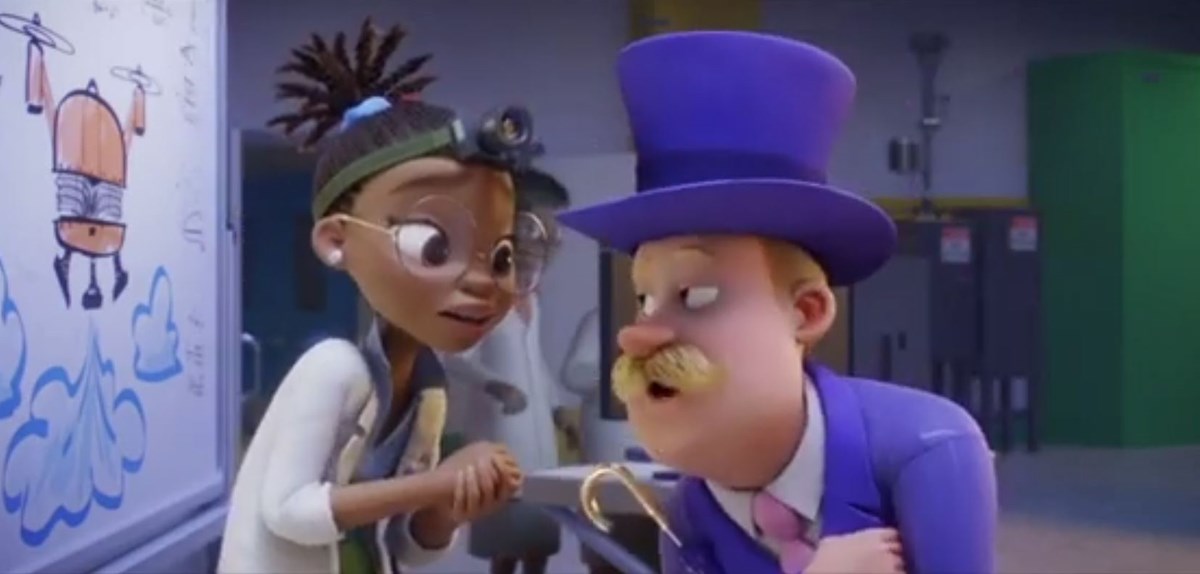 Watching PAW Patrol: The Movie in light of these arguments was a strange experience: I started to wonder whether I had clicked on the wrong film. The baddie, Mayor Humdinger, is a vain, bullying egomaniac who lives in a large tower. He is repeatedly seen addressing rallies, and promoting publicity for himself on social media (‘hashtag Humdinger’, he proclaims). He plans to get rid of museums and libraries (and dog parks), and is a climate change denier. He may have a top hat and an overblown moustache rather than an orange comb-over, but the reference is obvious. Humdinger is consistently mocked and defeated: it’s certainly hard to read the central conflict in the film as an endorsement of authoritarianism.
Watching PAW Patrol: The Movie in light of these arguments was a strange experience: I started to wonder whether I had clicked on the wrong film. The baddie, Mayor Humdinger, is a vain, bullying egomaniac who lives in a large tower. He is repeatedly seen addressing rallies, and promoting publicity for himself on social media (‘hashtag Humdinger’, he proclaims). He plans to get rid of museums and libraries (and dog parks), and is a climate change denier. He may have a top hat and an overblown moustache rather than an orange comb-over, but the reference is obvious. Humdinger is consistently mocked and defeated: it’s certainly hard to read the central conflict in the film as an endorsement of authoritarianism.
When it comes to representation, the gender imbalance in the team is certainly apparent. However, the new female recruit, Liberty, is one of the film’s strongest characters; and, like the Mayor of Adventure Bay, the city’s leading climate scientist is a woman of colour. The final and most challenging emergency, the malfunctioning weather satellite, is solved by Skye, the female member of the team, while many of the male puppies barely get a look-in. (Although she is undeniably quite pink.) I wouldn’t push it, but it’s certainly possible to read the narrative as one of female empowerment (in the story of Liberty) and of male vulnerability (Chase overcoming his childhood fears).
Like most of the film’s adult critics, I find the action sequences tiresome, and I loathe the Justin Bieber-style soundtrack. But self-evidently, it isn’t intended for the likes of me. There are probably enough adult-level jokes to keep parents (and grandparents) intermittently entertained (which of course is why they are included). And as regards its alleged ‘amorality’, the film concludes (as do so many kids’ cartoons) with a standard moral homily, in this case about looking after each other and taking care of the city. It’s stretching the point to say that the film is teaching children about citizenship or problem-solving, but I do think it’s teaching things about emotion and relationships, especially through the central story of Chase.
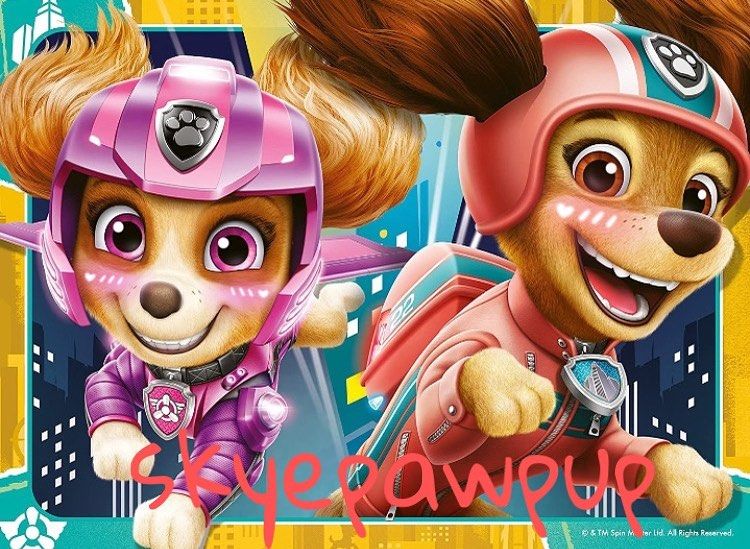 Of course, these are my own adult readings. I’m not seeking to make the case for PAW Patrol as covertly ‘progressive’, merely to suggest that there might be a little more going on here than its critics suggest. Over the past fifty years at least, academic studies of media have pointed to the limitations of reading ideology simply from an analysis of the text. Such analyses typically reduce a text to a set of simple ‘messages’ or abstract statements, even a kind of propaganda. They may also ignore contrary interpretations, of the kind I have tentatively suggested here. Most importantly, they tend to assume that the meanings that critics identify will coincide with those that audiences consume – and that audiences will swallow those messages whole. These problems are particularly acute when it comes to adult critics’ interpretations of media that are not designed for them, but for children.
Of course, these are my own adult readings. I’m not seeking to make the case for PAW Patrol as covertly ‘progressive’, merely to suggest that there might be a little more going on here than its critics suggest. Over the past fifty years at least, academic studies of media have pointed to the limitations of reading ideology simply from an analysis of the text. Such analyses typically reduce a text to a set of simple ‘messages’ or abstract statements, even a kind of propaganda. They may also ignore contrary interpretations, of the kind I have tentatively suggested here. Most importantly, they tend to assume that the meanings that critics identify will coincide with those that audiences consume – and that audiences will swallow those messages whole. These problems are particularly acute when it comes to adult critics’ interpretations of media that are not designed for them, but for children.
When I’ve made these arguments in the past, some people have accused me of suggesting that the media have no effects whatsoever. If I believed that, I’m not sure why I would have wasted my life teaching and studying the media. Rather, my point is that it’s all a bit more complicated. Simple, one-directional notions of cause-and-effect do little to explain the role of media in children’s lives; and seeking to ‘unmask’ ideology (or what we used to call ‘demystification’) is unlikely to make much difference.
If we want to address the politics of children’s media, we should certainly look a lot more carefully and seriously at these media themselves – and beware of ‘over-reading’ what we find. But ultimately, we need to begin with children, rather than with what we might regard as the ‘bad messages’ they are consuming. We need to take account of what children might and might not understand, how they feel about what they watch, and how they might use this in the context of their everyday lives. Over the years, researchers have developed some good ways of doing this, although unfortunately very few of them have been applied to very young children.
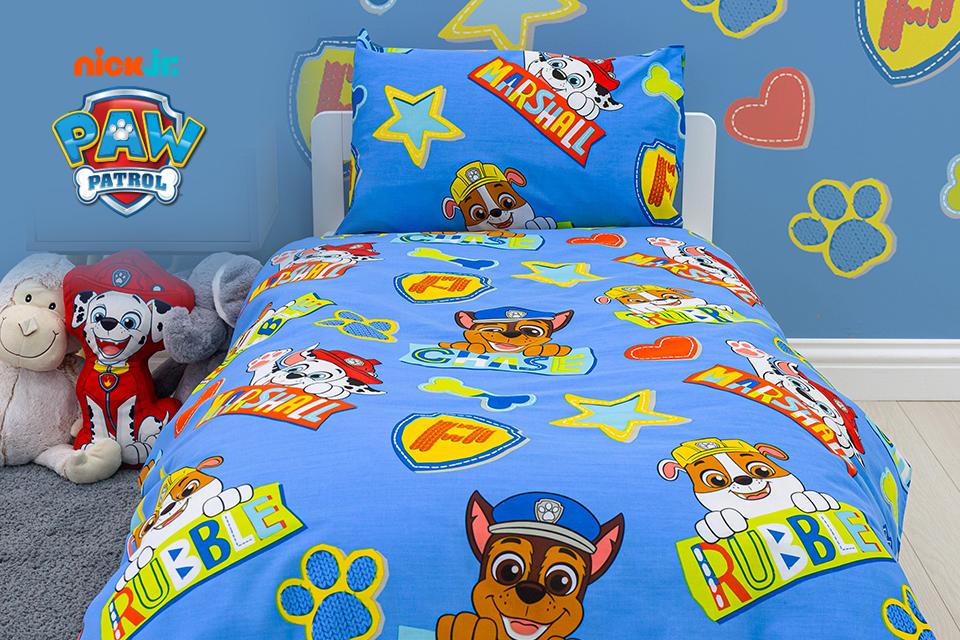 But if we’re interested in the politics of all this, there is another place we should also be looking. It’s hardly a revelation to suggest that, like so much children’s media of the past half-century, PAW Patrol is essentially a toy commercial. The first movie alone has made something approaching $150 million at the box office. The profit that has been generated from the TV series and (especially) the merchandise is almost certainly much, much greater than that – and most of that merchandise will end up in landfill, sooner rather than later. A more traditional (materialistic) political analysis would follow the money: where does this money come from, where does it go, and who benefits? And what if all the human labour and ingenuity that it took to generate such profits were to be expended in different and more diverse ways?
But if we’re interested in the politics of all this, there is another place we should also be looking. It’s hardly a revelation to suggest that, like so much children’s media of the past half-century, PAW Patrol is essentially a toy commercial. The first movie alone has made something approaching $150 million at the box office. The profit that has been generated from the TV series and (especially) the merchandise is almost certainly much, much greater than that – and most of that merchandise will end up in landfill, sooner rather than later. A more traditional (materialistic) political analysis would follow the money: where does this money come from, where does it go, and who benefits? And what if all the human labour and ingenuity that it took to generate such profits were to be expended in different and more diverse ways?
For further discussion: I’ve written about ‘adultist’ criticisms of children’s culture in previous posts and essays on this site – for example in relation to Peppa Pig, Disney and Enid Blyton.

Pingback: Mutant Mayhem: understanding the longevity of the Ninja Turtles | David Buckingham